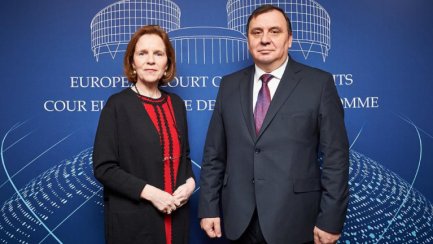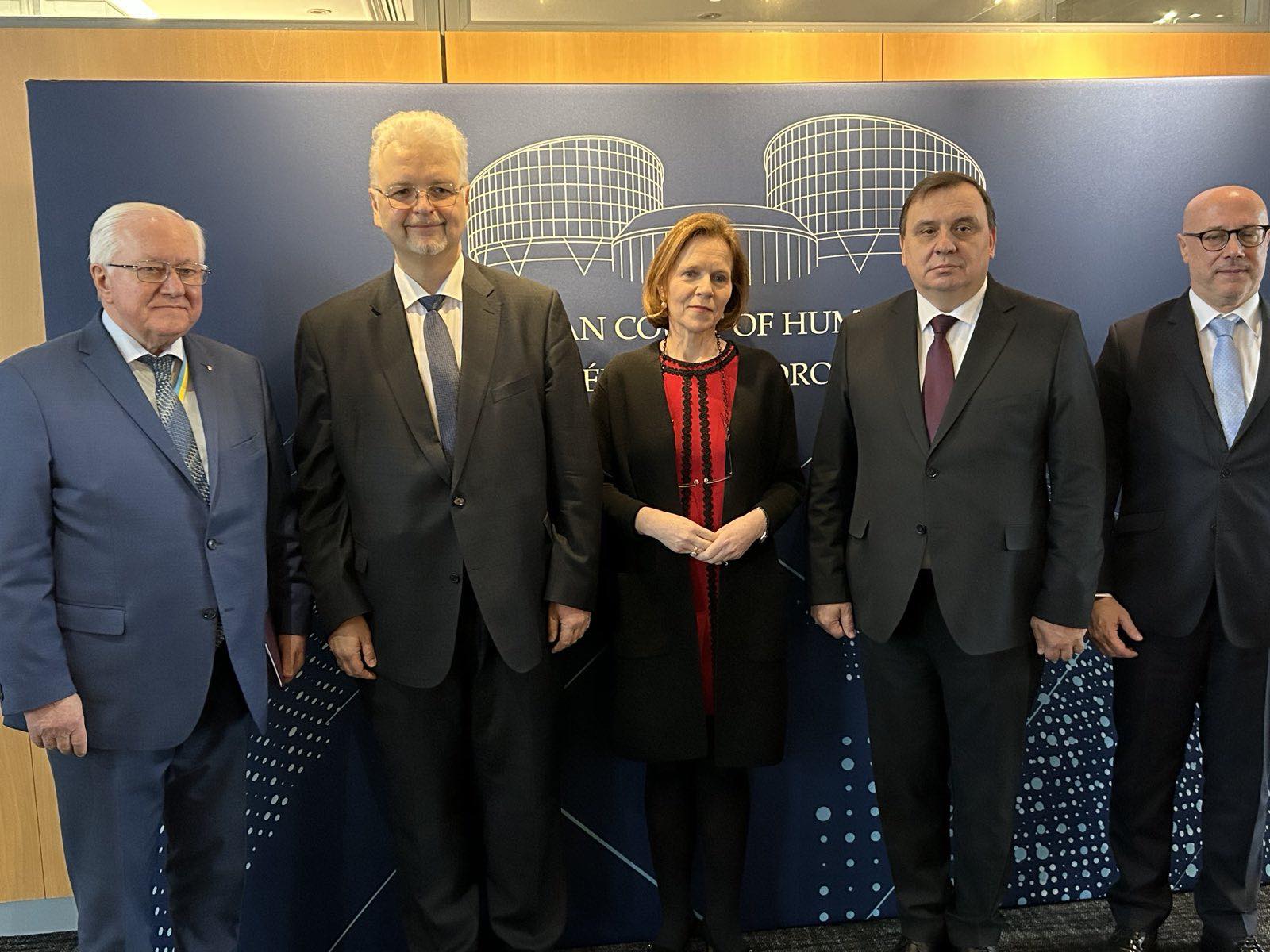Contact center of the Ukrainian Judiciary 044 207-35-46

The Judicial Year of the European Court of Human Rights was officially opened today, 26 January 2024. On this occasion, Stanislav Kravchenko, President of the Supreme Court, held a working meeting with Siofra O'Leary, President of the ECHR.
"Ukrainian judges are aware that the future of Ukraine is in the European Union, and therefore we must follow European values, Council of Europe standards, principles of democracy and the rule of law. And now, at a very difficult time for our country, it is particularly important for us to feel the support of our colleagues from the European Court of Human Rights," said Stanislav Kravchenko.
During the meeting, the parties discussed the challenges faced by Ukrainian courts in the context of the war, the length of time taken by national courts to consider cases and the execution of court decisions.
Siofra O'Leary noted that this was the second time she had spoken about the war in Ukraine in her speech opening the ECHR Judicial Year.

"The ECHR reacted immediately to the outbreak of full-scale war by amending some procedural rules and other mechanisms important for the work of the Court, adapting them to the new realities in order to be able to continue working on cases concerning Ukraine. One of the driving forces behind these changes was the fact that the Ukrainian judiciary continued to function against all odds," the ECHR President stressed.
In addition, according to Siofra O'Leary, it is the judiciary that is an important link that prepares the country for successful accession to the EU, and the Supreme Court plays a leading role in this process.
Other participants in the meeting included ECHR Judge in respect of Ukraine Mykola Hnatovskyy, Deputy Registrar of the ECHR Abel Campos and Permanent Representative of Ukraine to the Council of Europe Borys Tarasyuk.
Later that day, the President of the Supreme Court took part in the ECHR judicial seminar "Revisiting subsidiarity in the age of shared responsibility".